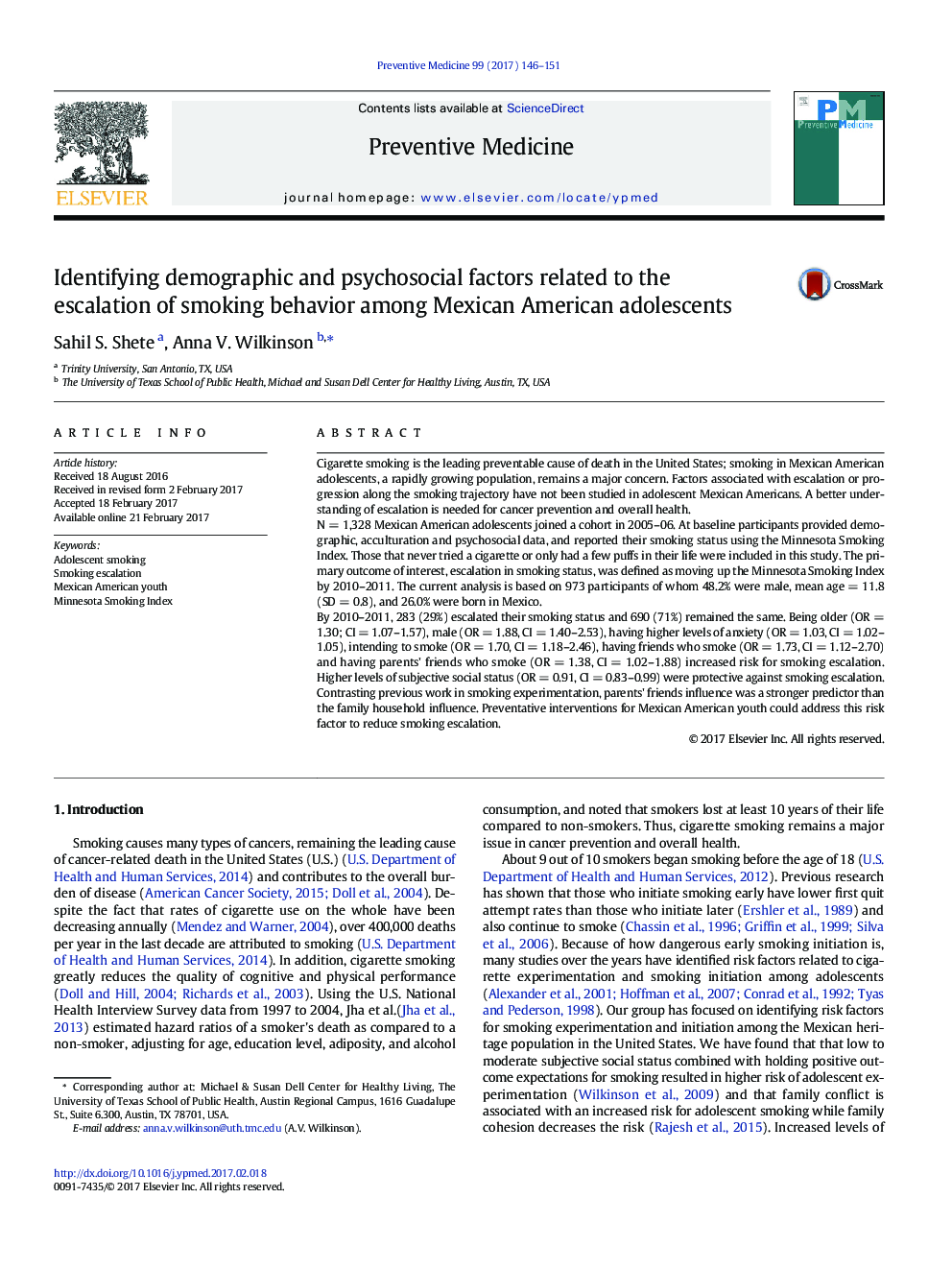| Article ID | Journal | Published Year | Pages | File Type |
|---|---|---|---|---|
| 5635673 | Preventive Medicine | 2017 | 6 Pages |
â¢Over the course of 5 years, 29% of the adolescents escalated in smoking behavior.â¢Higher levels of anxiety were associated with escalation in smoking.â¢Intentions to smoke and having friends that smoke increased the risk of escalation.â¢Higher levels of subjective social status were protective against escalation.â¢Parents' friends influence was stronger than household influence on escalation.
Cigarette smoking is the leading preventable cause of death in the United States; smoking in Mexican American adolescents, a rapidly growing population, remains a major concern. Factors associated with escalation or progression along the smoking trajectory have not been studied in adolescent Mexican Americans. A better understanding of escalation is needed for cancer prevention and overall health.N = 1,328 Mexican American adolescents joined a cohort in 2005-06. At baseline participants provided demographic, acculturation and psychosocial data, and reported their smoking status using the Minnesota Smoking Index. Those that never tried a cigarette or only had a few puffs in their life were included in this study. The primary outcome of interest, escalation in smoking status, was defined as moving up the Minnesota Smoking Index by 2010-2011. The current analysis is based on 973 participants of whom 48.2% were male, mean age = 11.8 (SD = 0.8), and 26.0% were born in Mexico.By 2010-2011, 283 (29%) escalated their smoking status and 690 (71%) remained the same. Being older (OR = 1.30; CI = 1.07-1.57), male (OR = 1.88, CI = 1.40-2.53), having higher levels of anxiety (OR = 1.03, CI = 1.02-1.05), intending to smoke (OR = 1.70, CI = 1.18-2.46), having friends who smoke (OR = 1.73, CI = 1.12-2.70) and having parents' friends who smoke (OR = 1.38, CI = 1.02-1.88) increased risk for smoking escalation. Higher levels of subjective social status (OR = 0.91, CI = 0.83-0.99) were protective against smoking escalation.Contrasting previous work in smoking experimentation, parents' friends influence was a stronger predictor than the family household influence. Preventative interventions for Mexican American youth could address this risk factor to reduce smoking escalation.
